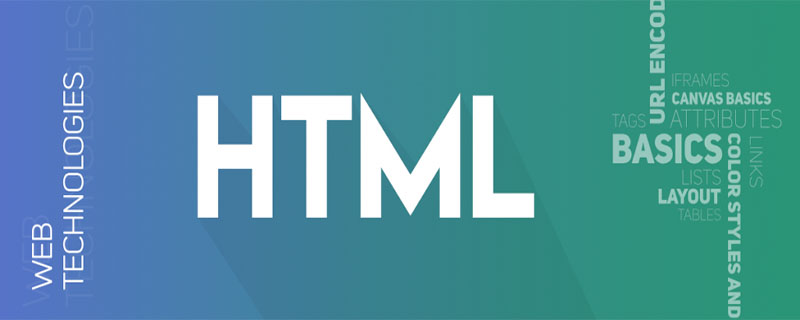HTML5 mobile adaptive layout

Scenario: To adapt to screens of various sizes
Two ways I know of adaptive layout
1. Use media queries, formulated below There are several adaptation methods. For example, the first one indicates that the screen width is between 320px-360px, and the html font size is adapted to 13.65px
<style>
@media only screen and (max-width: 360px) and (min-width: 320px){
html{
font-size:13.65px;
}
}
@media only screen and (max-width: 375px) and (min-width: 360px){
html{
font-size:23.4375px;
}
}
@media only screen and (max-width: 390px) and (min-width: 375px){
html{
font-size:23.4375px;
}
}
@media only screen and (max-width: 414px) and (min-width: 390px){
html{
font-size:17.64px;
}
}
@media only screen and (max-width: 640px) and (min-width: 414px){
html{
font-size:17.664px;
}
}
@media screen and (min-width: 640px){
html{
font-size:27.31px;
}
}
</style>2. Responsive, get the width of the screen and calculate a certain For the proportion of size, use rem instead of px. When using it, such as font-size: 1rem, the size effect displayed on mobile phones with different screen sizes is different, and it is adaptive to the size ratio of the mobile phone screen
<script>
(function(doc, win) {
var docEl = doc.documentElement, //根元素html
//判断窗口有没有orientationchange这个方法,有就赋值给一个变量,没有就返回resize方法。
resizeEvt = 'orientationchange' in window ? 'orientationchange' : 'resize',
recalc = function() {
var clientWidth = docEl.clientWidth;
if(!clientWidth) return;
//把document的fontSize大小设置成跟窗口成一定比例的大小,从而实现响应式效果。
if(clientWidth >= 640) {
clientWidth = 640;
}
docEl.style.fontSize = 20 * (clientWidth / 320) + 'px';
console.log(clientWidth);
console.log(docEl.style.fontSize);
};
recalc();
if(!doc.addEventListener) return;
win.addEventListener(resizeEvt, recalc, false); //addEventListener事件方法接受三个参数:第一个是事件名称比如点击事件onclick,第二个是要执行的函数,第三个是布尔值
doc.addEventListener('DOMContentLoaded', recalc, false) //绑定浏览器缩放与加载时间
})(document, window);
</script><p id="p2" class="text" style="border: 0.04rem solid #ccc;
height: 14rem;font-size: 0.5rem;">Recommended tutorial: "HTML"
The above is the detailed content of HTML5 mobile adaptive layout. For more information, please follow other related articles on the PHP Chinese website!

Hot AI Tools

Undresser.AI Undress
AI-powered app for creating realistic nude photos

AI Clothes Remover
Online AI tool for removing clothes from photos.

Undress AI Tool
Undress images for free

Clothoff.io
AI clothes remover

Video Face Swap
Swap faces in any video effortlessly with our completely free AI face swap tool!

Hot Article

Hot Tools

Notepad++7.3.1
Easy-to-use and free code editor

SublimeText3 Chinese version
Chinese version, very easy to use

Zend Studio 13.0.1
Powerful PHP integrated development environment

Dreamweaver CS6
Visual web development tools

SublimeText3 Mac version
God-level code editing software (SublimeText3)

Hot Topics
 1386
1386
 52
52
 Table Border in HTML
Sep 04, 2024 pm 04:49 PM
Table Border in HTML
Sep 04, 2024 pm 04:49 PM
Guide to Table Border in HTML. Here we discuss multiple ways for defining table-border with examples of the Table Border in HTML.
 HTML margin-left
Sep 04, 2024 pm 04:48 PM
HTML margin-left
Sep 04, 2024 pm 04:48 PM
Guide to HTML margin-left. Here we discuss a brief overview on HTML margin-left and its Examples along with its Code Implementation.
 Nested Table in HTML
Sep 04, 2024 pm 04:49 PM
Nested Table in HTML
Sep 04, 2024 pm 04:49 PM
This is a guide to Nested Table in HTML. Here we discuss how to create a table within the table along with the respective examples.
 HTML Table Layout
Sep 04, 2024 pm 04:54 PM
HTML Table Layout
Sep 04, 2024 pm 04:54 PM
Guide to HTML Table Layout. Here we discuss the Values of HTML Table Layout along with the examples and outputs n detail.
 HTML Input Placeholder
Sep 04, 2024 pm 04:54 PM
HTML Input Placeholder
Sep 04, 2024 pm 04:54 PM
Guide to HTML Input Placeholder. Here we discuss the Examples of HTML Input Placeholder along with the codes and outputs.
 HTML Ordered List
Sep 04, 2024 pm 04:43 PM
HTML Ordered List
Sep 04, 2024 pm 04:43 PM
Guide to the HTML Ordered List. Here we also discuss introduction of HTML Ordered list and types along with their example respectively
 Moving Text in HTML
Sep 04, 2024 pm 04:45 PM
Moving Text in HTML
Sep 04, 2024 pm 04:45 PM
Guide to Moving Text in HTML. Here we discuss an introduction, how marquee tag work with syntax and examples to implement.
 HTML onclick Button
Sep 04, 2024 pm 04:49 PM
HTML onclick Button
Sep 04, 2024 pm 04:49 PM
Guide to HTML onclick Button. Here we discuss their introduction, working, examples and onclick Event in various events respectively.




